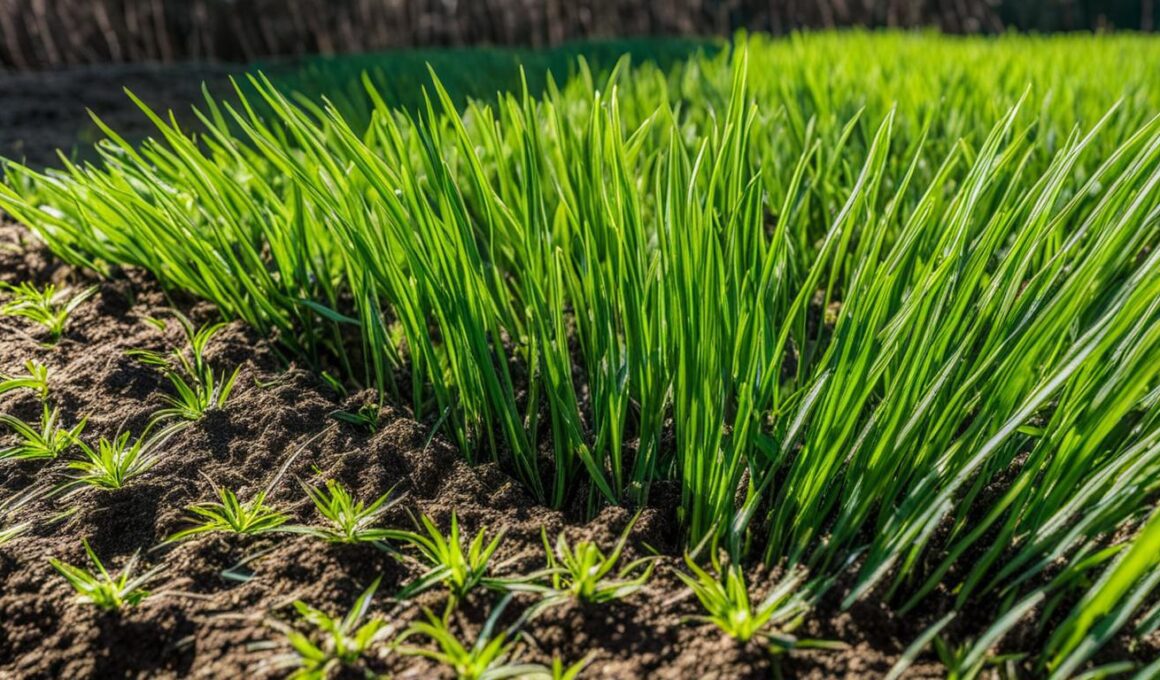If you’ve recently planted new grass and are considering fertilizing it, you may be wondering if the fertilizer could potentially harm or kill your grass. Luckily, when used correctly, fertilizer can greatly benefit the growth and health of new grass. By understanding the right type of fertilizer to use and how to apply it properly, you can ensure that your new grass thrives and flourishes.
Choosing the Right Starter Fertilizer for New Grass
When it comes to choosing a starter fertilizer for your new grass, the NPK ratio is a crucial factor to consider. The NPK ratio refers to the balance of nitrogen (N), phosphorus (P), and potassium (K) in the fertilizer. For healthy root development in grass seedlings, a higher concentration of phosphorus is essential.
Common NPK ratios for starter fertilizers include:
- 10-10-10
- 16-8-8
- 20-10-10
These ratios ensure a sufficient supply of phosphorus to promote strong root establishment and rapid germination. To determine the specific nutrient needs of your soil, consider conducting a soil test. This test will provide valuable insights and guide you in choosing the right fertilizer for your grass seedlings.
It is recommended to apply the starter fertilizer before or at the time of sowing the grass seed. This allows the nutrients to be readily available for the emerging seedlings, giving them a healthy start.
Applying Starter Fertilizer to New Grass
Properly applying starter fertilizer is essential for the success of your new grass. Before you start, make sure to prepare the soil for optimal results. Start by removing any debris from the area and leveling the ground. Adding organic material can help improve soil fertility and provide a healthy environment for your grass seedlings to thrive.
Once your soil is prepared, it’s important to consider the weather conditions before applying the fertilizer. Check the forecast and avoid fertilizing if rain is predicted, as it can wash away the nutrients and affect even distribution. For an even application, use a spreader or sprayer to ensure every blade of grass receives the necessary nutrients.
To maximize absorption and root penetration, work the fertilizer into the soil after application. This will help the roots access the nutrients and promote healthy growth. For best results, apply the starter fertilizer in the morning or evening when temperatures are cooler, avoiding the hotter parts of the day.
By following these steps and applying starter fertilizer correctly, you are providing your new grass with the essential nutrients it needs for healthy establishment. The proper soil preparation and even distribution of the fertilizer will contribute to the overall success of your lawn.
Conclusion
In summary, fertilizing new grass with a starter fertilizer is crucial for promoting healthy growth and establishment. The phosphorus-rich composition of the fertilizer plays a key role in facilitating robust root development and fast germination. To ensure optimal results, it is essential to select a starter fertilizer with the appropriate NPK ratio that suits your specific soil requirements.
Prioritizing proper soil preparation is another vital aspect of the fertilization process for new grass. By removing debris, leveling the area, and incorporating organic material into the soil, you create an ideal environment for the grass to thrive. Additionally, it is crucial to distribute the fertilizer evenly across the entire area, ensuring that each blade of grass receives the necessary nutrients for growth.
By following these key takeaways, you can nurture your new grass and enjoy a lush, beautiful lawn. Remember to choose the right starter fertilizer, prepare the soil adequately, and apply the fertilizer evenly for optimal results. With the right care and attention, your new grass will flourish and provide a vibrant centerpiece for your outdoor space.
Could the Presence of Small Spiky Balls in My Grass Indicate the Need for Fertilizer?
If you notice small spiky grass balls in your lawn, it could be a sign that your grass needs fertilizer. These spiky balls are likely the result of dry and nutrient-deficient soil. Fertilizing your lawn can help improve the overall health and appearance of your grass.










